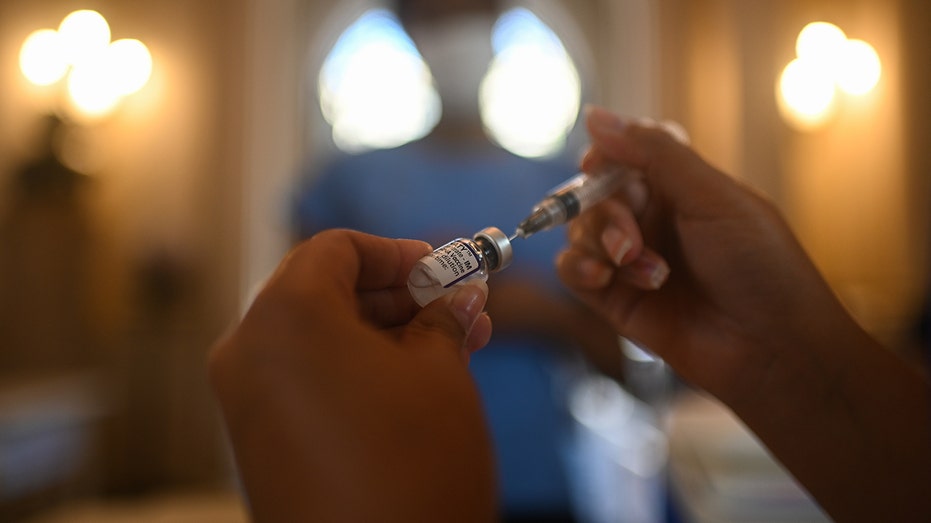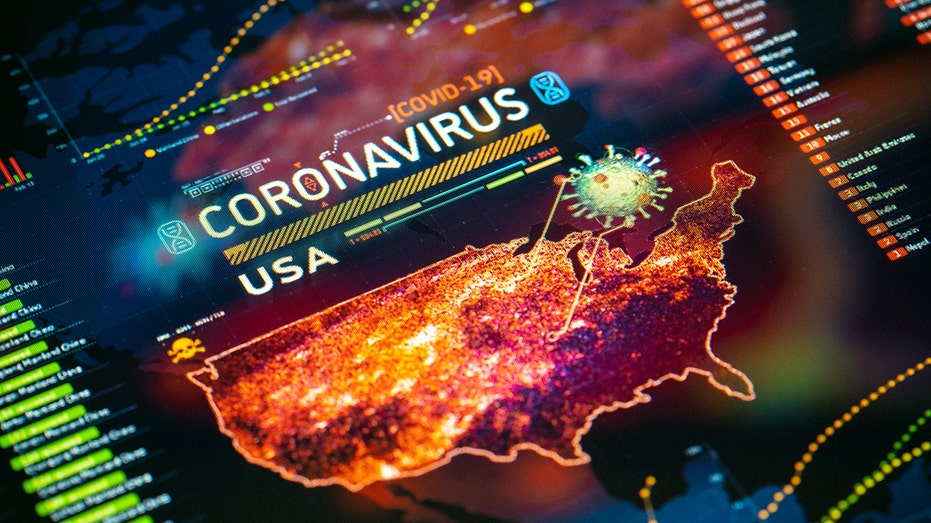COVID-19 cases rise in the US, with limited impact
The fast-mutating virus still poses risks, but cases appear to have flattened out
The House Select Subcommittee on the Coronavirus Crisis holds a hearing
The House Select Subcommittee on the Coronavirus Crisis holds a hearing.
As new Omicron variants further infiltrate the U.S., a jumble of signals suggest the latest increase in Covid-19 infections hasn’t sparked a commensurate surge in severe illness even as risks remain.
Covid-19 virus levels detected in wastewater in the Northeast, the first region to see significant concentrations of the easily transmitted Omicron BA.2 variant, appear to have flattened out in the past two weeks. Covid-19 hospital admissions have risen in the region, but they remain far below levels during earlier surges that indicated widespread severe illness and taxed healthcare facilities.
US FDA APPROVES GILEAD'S COVID-19 DRUG FOR YOUNG CHILDREN
"This wave of Covid in the United States, in the places where it is, is not dangerous in a way that prior waves of Covid were," said Megan Ranney, an emergency physician and academic dean at Brown University’s School of Public Health.
The fast-mutating virus still poses risks, she said. New York state is a hot spot for rising cases from another, even more easily spread version known as BA.2.12.1. Wastewater levels nationwide have tripled since mid-March, according to data from Biobot Analytics Inc., though they pale in comparison to readings during the Omicron surge.
FDA APPROVES FIRST COVID BREATH TEST FOR EMERGENCY USE
Counts of new cases, though poorly tracked partly because so many people are now self-testing at home, beyond the view of health departments, are still increasing. Cases have recently risen to a seven-day moving average above 55,000 a day, according to Johns Hopkins University, double the averages from early April.
Hospitalizations, though muted, are edging higher and often lag behind case counts. The seven-day rolling average for confirmed and suspected Covid-19 hospitalizations recently topped 17,100, federal data show, up from an all-time, post-surge low of about 14,770 in mid-April. It is also a fraction of the more than 159,000 patients during the Omicron surge.

17 November 2021, Brazil, Rio De Janeiro: A health worker prepares a dose of Pfizer's COVID-19 vaccine at the Rio de Janeiro City Hall, where a vaccination site is located. (Photo by Andre Borges/picture alliance via Getty Images / Getty Images)
Epidemiologists say the U.S. may have gained at least some temporary protection from the record-breaking wintertime surge triggered by an earlier version of Omicron in combination with protection from Covid-19 vaccines. The Centers for Disease Control and Prevention last week estimated the proportion of people in the U.S. with infection-induced antibodies jumped from 34% in December to 58% in February.
MODERNA ASKS FDA TO AUTHORIZE COVID VACCINE FOR EMERGENCY USE IN CHILDREN UNDER 6
CDC Director Rochelle Walensky said last week that built-up protection from Covid-19 vaccines and prior infection is likely why hospitalizations are relatively muted so far. "We haven’t seen them pick up as much as we might have expected in prior times during this pandemic, thanks to I believe a large amount of protection in the community," she said.
The protective benefits of the Omicron surge came with a price, including a peak in early February above 2,500 newly reported Covid-19 deaths a day. Most recently the U.S. has averaged about 350 reported deaths a day.

Coronavirus (COVID-19) Outbreak in USA Statistics close-up on digital display. Quarantine map. (iStock)
The CDC on Thursday said New York is home to the 37 out of 54 U.S. counties that the agency says have high levels of Covid-19 community transmission. The BA.2.12.1 version that has been spreading there has a growth advantage of about 25% over the Omicron BA.2 variant, New York officials said. The CDC recommends donning masks in indoor, public settings in counties that are ranked high. Officials in the state have been reluctant to reimpose mask mandates.
PFIZER RECALLS SOME BATCHES OF BLOOD PRESSURE DRUG OVER CARCINOGEN PRESENCE
"If our medical infrastructure is not in peril, it’s not an emergency," said Onondaga County Executive Ryan McMahon, a Republican whose county includes the city of Syracuse.

Young barista and Modern woman paying contactless at cafe wearing face protective mask to prevent Coronavirus and other diseases (iStock)
Federal officials and the CDC’s risk assessments are also moving to a place where they are more sharply focusing on hospitalizations, while still considering cases to some degree. "The goal of our policies should be, obviously minimize infections whenever possible, but to make sure that people don’t get seriously ill," White House Covid-19 response coordinator Ashish Jha said Tuesday.
Mild infections can sometimes cause longer-term symptoms and complications, some public-health experts said, and unmitigated spread increases the risk that the virus will mutate into something more sinister.
GET FOX BUSINESS ON THE GO BY CLICKING HERE
The more transmission can be interrupted, the better for everyone, said Daniel Parker, an infectious-disease epidemiologist at the University of California Irvine. He said caution is warranted, even though recent infection increases appear to be more of a bump than a major wave.
"We’re transitioning in how we’re dealing with the pandemic," he said. "I hope that we’ll be nimble."




















